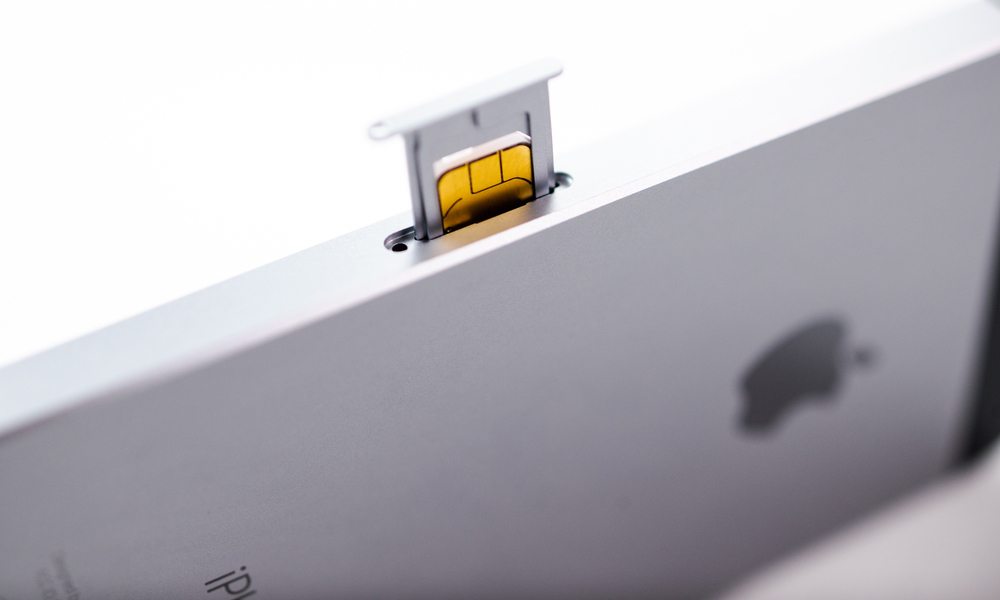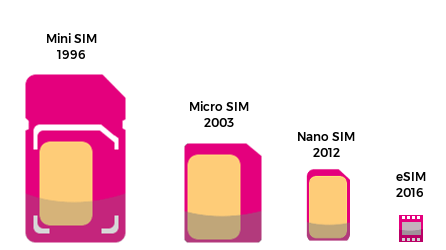DoJ Investigating Whether AT&T, Verizon Colluded to Hamper eSIM
 Credit: Hadrian / Shutterstock
Credit: Hadrian / Shutterstock
Hadrian / Shutterstock
Toggle Dark Mode
The Department of Justice is launching an antitrust investigation to determine whether major telecommunications entities colluded to keep customers from easily switching carriers, according to a new report.
Back in February, the DoJ issued demands for information to AT&T, Verizon and the GSM Association, an industry standards group. Specifically, the Justice Department was investigating a potential plot to thwart a nascent technology called eSIM, according to The New York Times, which cited several sources with knowledge of the matter.
Specifically, the investigation surrounds eSIM (embedded SIM) technology. Unlike traditional physical SIM cards, eSIM allows users to switch carriers without needing to swap their SIM cards or devices.
AT&T and Verizon are accused of pushing to “establish standards” that would allow them to lock a mobile device to their network — even if that device had eSIM technology. Locking devices to their own network would “bypass” the purpose of eSIM and hinder the flexibility of the technology, the Times noted.
The telecom giants allegedly pushed for network-locking at a private GSMA meeting earlier this year. Verizon said it needed the ability to prevent theft and fraud.
The Investigation
In a separate report, the Wall Street Journal added that the DoJ issued civil investigative demands to all four major carriers, including Sprint and T-Mobile. That report noted that AT&T and Verizon are the main focus of the investigation, however.
Reportedly, the investigation was first opened around five months ago when “at least” one device maker and another wireless carrier lodged formal complaints with the DoJ. According to the New York Times’ sources, the device maker was Apple.
Several Apple devices, like the Apple Watch and iPad, already use some sort of eSIM technology. Google and Microsoft also use eSIM technology in some of their devices, hinting that they may have had an incentive to file complaints as well.
Currently, Verizon does not allow iPad users to enable cellular service via eSIM. AT&T, for its part, locks devices that use eSIM to its own networks.
As the NYT report points out, Verizon and AT&T together control about 70 percent of total wireless subscription market share. A technology that makes it easier to switch carriers could harm that.
Verizon, AT&T & GSMA Response
In a statement, a Verizon spokesperson said that the issue was “much ado about nothing” and that the telecom firm had been cooperating with the DoJ for several months.
The spokesperson added that the inquiry resulted from a “difference of opinion with a couple of phone equipment manufacturers regarding the developing of eSIM standards.”
AT&T and the GSMA also issued statements clarifying that they are aware and cooperating with the investigation. The GSMA, for its part, added that it has put a hold on development of the eSIM specification pending the investigation’s completion, ARS Technica reported.
What This Means for Apple Users
Apple and other device manufacturers are pushing for eSIM for a variety of reasons. For one, using the technology could allow for extra internal space within a device — which could be leveraged for other components.
But flexible eSIM technology, if implemented, could also allow consumers to more easily switch between carriers. It could also let users who travel frequently use their devices without needing to physically switch out their SIM cards. In other words, it could give Apple and other device users better flexibility and more choices.







